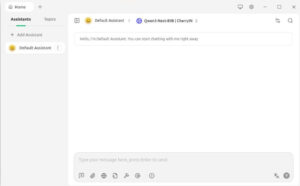The app that takes the headache out of running Windows software on Linux is facing tough challenges as it struggles with technical debt and a lack of funding.

When the Linux app Bottles came along in 2017 it scratched a lot of Linux users’ itches. That’s because it takes the pain out of getting Windows apps running on Linux.
In some ways Bottles is like an automated front end for Wine, the app that works as a compatibility layer for running Windows apps on Linux. The addition of Bottles makes life easier for those with little experience using Wine, which isn’t exactly user friendly. Experienced Wine wranglers also benefit, because it eliminates the drudge work of manually editing configurations or troubleshooting common issues.
Although Bottles is popular, lately it’s been dealing with money issues. That’s not unusual. Many useful and popular Linux projects have problems with money, mostly with not having enough of it.
In a sane world, the Linux Foundation would’ve long ago recognized this and would have created a Desktop Linux Foundation to take valuable projects like this under its wing, but it’s been clear since almost the day it took ownership of Linux that it sees no purpose in desktop Linux. This leaves projects such as Bottles adrift and subject to the whims of the winds and tides.
The good news is that this bottle isn’t going to sink. Not if Mirko Brombin, the project’s founder and lead developer has anything to do with it.
“I want to clarify one important thing,” he said in a blog he published a couple of weeks back that outlined the project’s financial difficulties. “Bottles Next is definitely not dead! It’s moving forward, perhaps slowly, but with great care. I myself am still working on the prototyping, even if I have little time available. Alongside me, there are other people on the team who are making valuable contributions to the project.”
Brombin made clear that the problem isn’t primarily about paying the bills to keep the development infrastructure afloat. Much of the infrastructure is covered, but not all.
“There are fantastic companies like Hyperbit, Linode, JetBrains, and others that support us,” he said, “and it’s only thanks to them that everything continues to function. Without these valuable collaborations, it would already be very difficult to guarantee the project’s technical continuity. Unfortunately, however, it’s not enough.”
The main problem is unpaid developers — including Brombin — who have to work elsewhere to provide for their families, which means less time for Bottles.
“The pace is slow because the time we can dedicate to it is minimal, and it’s not right to pretend things are otherwise,” he said.
Bottles’ Technical Debt
A dev crew struggling to find enough time to play catch-up puts a project in the position of not being able to live up to its potential. This is especially true when the problem is struggling with technical debt, in this case code compromises that were made in the project’s early days that must be corrected if it’s to move forward.
“Bottles’ current structure has had its day,” Brombin explained. “It’s full of patches, temporary solutions, workarounds, and architectural limitations that today prevent us from making a qualitative leap.”
“We saw this clearly with UMU, one of the most requested features,” he added, referring to the Unified Linux Wine Game Launcher. “We can’t implement it as we’d like, because the current code doesn’t allow it. We could do it in a ‘dirty’ way, of course, just to ‘have it.’ But does it really make sense?”
Fortunately, the project has capable hands on board to help clean up the code. That would be TheEvilSkeleton, otherwise known as Hari Rana, a Montreal-based software engineer for Gnome and a technical writer for Fedora, who’s now also helping out at Bottles.
“He took over the project with great determination, leading the team in an attempt to modernize the backend, make the code more scalable, more readable, less chaotic,” Brombin said. “It’s a work of enormous value, and I am sincerely proud of him and what he has achieved. But the truth is that the underlying problem remains.”
He said the future of Bottles lies in a sub-project called “Next,” which will include a backend that’s been redesigned from the ground up, along with a detailed redefinition of the overall project.
“We’re talking about new reusable libraries, designed to be modular and flexible,” he said. “We’re talking about a modern communication protocol between backend and frontend, more solid and easier to extend. But all of this needs one fundamental thing: time. And time, today, needs to be funded.”
Looking for Mr. Cashbar
Meanwhile, Brombin is wearing out shoe leather, seeking funds to help fast-track the project to success.
“I am actively working to find sponsorships,” he said. “I am in contact with a possible funding source that could allow us to accelerate development, to pay a small bonus to those working on Next, to give some breathing room to those who are contributing. But here too, it takes time.”
If you want to contribute, Bottles has a webpage set up for that. While we’re at it, if you’re a coder and you want to contribute, you can take a look at the project’s Contribution Guide and Coding Guidelines.
“Every little bit helps,” Brombin said. “Thanks for being part of the journey.”
Christine Hall has been a journalist since 1971. In 2001, she began writing a weekly consumer computer column and started covering Linux and FOSS in 2002 after making the switch to GNU/Linux. Follow her on Twitter: @BrideOfLinux







